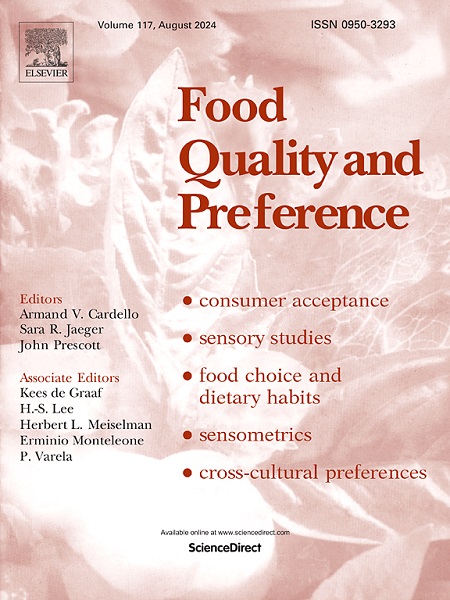Reviving the entomophagy tradition among the younger generation: An application of the theory of planned behavior
IF 4.9
1区 农林科学
Q1 FOOD SCIENCE & TECHNOLOGY
引用次数: 0
Abstract
Edible insects are sustainable sources of animal protein. Although insects are novel foods in Western societies, the Asia-Pacific region preserves traditional entomophagy cultures. In parts of the Asia-Pacific region, the amount consumed gradually declined with each passing generation. Reviving the entomophagy tradition among the younger generation is crucial for the future market for edible insects. This study examined young consumers’ perceptions of edible insects and the psychological determinants of their consumption. This study was conducted in Japan, which is a typical example of generational differences in insect consumption due to traditional eating habits. We adopted the theory of planned behavior (TPB) to identify psychological determinants of entomophagy and conducted two online surveys among 391 and 342 young Japanese consumers, respectively. We extended the original TPB by adopting a treatment–control design in which respondents in the treatment group received information on product availability. The results revealed that edible insects remained a novel food among respondents. The TPB revealed that subjective norms and perceived behavioral control (PBC) were determinants of consumption intention, whereas intention and PBC were determinants of behavior. Information on product availability had a significant positive impact on intention; however, it had little impact on behavior. Furthermore, we found that food safety control was the most valued product attribute and hedonistic attributes were prioritized over functionalist attributes. Based on these findings, this study proposes possible promotional strategies that provide valuable insights for marketers and policymakers in Japan and other countries to revive the entomophagy tradition among younger generations.
在年轻一代中恢复昆虫狩猎传统:计划行为理论的应用
食用昆虫是可持续的动物蛋白质来源。虽然昆虫在西方社会是新奇的食物,但亚太地区却保留着传统的昆虫食文化。在亚太地区的部分地区,昆虫的食用量随着时代的变迁而逐渐减少。在年轻一代中恢复昆虫嗜食传统对未来的食用昆虫市场至关重要。本研究考察了年轻消费者对食用昆虫的看法及其消费的心理决定因素。本研究在日本进行,由于传统饮食习惯,日本是昆虫消费存在代际差异的典型例子。我们采用计划行为理论(TPB)来确定昆虫消费的心理决定因素,并分别对 391 名和 342 名日本年轻消费者进行了两次在线调查。我们对原有的 TPB 理论进行了扩展,采用了处理-对照设计,其中处理组的受访者获得了有关产品供应的信息。结果显示,食用昆虫在受访者中仍然是一种新奇的食物。主观规范和感知行为控制(PBC)是消费意向的决定因素,而消费意向和感知行为控制则是行为的决定因素。产品供应信息对消费意向有显著的积极影响,但对消费行为的影响很小。此外,我们还发现,食品安全控制是最受重视的产品属性,享乐主义属性优先于功能主义属性。基于这些发现,本研究提出了可能的推广策略,为日本和其他国家的营销人员和政策制定者提供了宝贵的见解,以恢复年轻一代的昆虫食性传统。
本文章由计算机程序翻译,如有差异,请以英文原文为准。
求助全文
约1分钟内获得全文
求助全文
来源期刊

Food Quality and Preference
工程技术-食品科技
CiteScore
10.40
自引率
15.10%
发文量
263
审稿时长
38 days
期刊介绍:
Food Quality and Preference is a journal devoted to sensory, consumer and behavioural research in food and non-food products. It publishes original research, critical reviews, and short communications in sensory and consumer science, and sensometrics. In addition, the journal publishes special invited issues on important timely topics and from relevant conferences. These are aimed at bridging the gap between research and application, bringing together authors and readers in consumer and market research, sensory science, sensometrics and sensory evaluation, nutrition and food choice, as well as food research, product development and sensory quality assurance. Submissions to Food Quality and Preference are limited to papers that include some form of human measurement; papers that are limited to physical/chemical measures or the routine application of sensory, consumer or econometric analysis will not be considered unless they specifically make a novel scientific contribution in line with the journal''s coverage as outlined below.
 求助内容:
求助内容: 应助结果提醒方式:
应助结果提醒方式:


